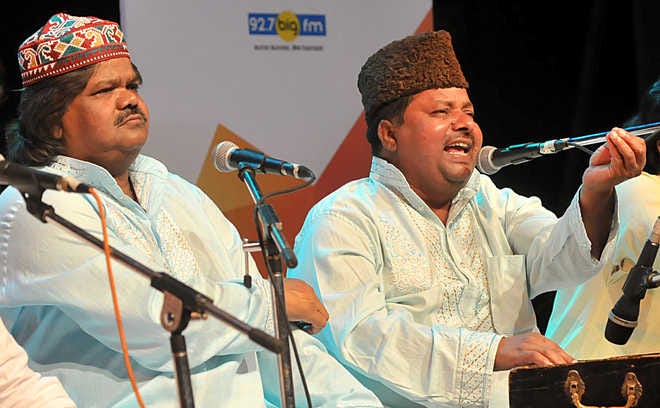The Sabri Brothers are counted among the greatest Sufi qawwali singers of all time. Revered as Shahenshah-e-Qawwali—the Kings of Kings of Qawwali—and celebrated as roving ambassadors of Pakistan, they carried their music like a prayer.
My mother attended one of their concerts when they were touring India, sometime in the late ’70s, if memory serves. Their reputation preceded them, and the hall was full when the performance began. But as the evening wore on, the crowd began to thin. Perhaps the music was too classical for some, or dinner beckoned, or maybe the bar opened early. Soon, only about 15 or 20 people remained in a hall meant for 200.
The elder Sabri Brother surveyed the near-empty hall, laughed, and said with warmth: “Agar aap log decoration wale nahin hain, toh samne aa jaye. Mehfil ab jamne wali hai!” (“If you are not part of the décor, come closer. The real concert is about to begin!”)
And it did. My mother swore it was one of the most unforgettable performances of her life. At the end, Maqbool Ahmed Sabri declared, “Hamein qadrdaan chahiyen. Chahe woh pandra hee kyon na hon.” (“We only need true lovers of music, even if there are only fifteen.”)
I’ve carried that story with me ever since.
At work, in SVP, in poetry gatherings, we craft our programmes with care, passion, and purpose. We send invitations, make calls, and wait for people to show up. It can be nerve-wracking when a person of stature has been invited—especially after we’ve received RSVPs and verbal confirmations—only to be greeted by empty chairs. Over time, I’ve heard every excuse:
• “I was on my way when an allergy attack struck.”
• “My 90-year-old mother fell ill; I had to rush her to the hospital.”
• “I got stuck at work—it would’ve taken me 90 minutes to get there.”
• “A sudden emergency meeting came up. I’m actually heading to the airport.”
And these, I must confess, are just the excuses I’ve made along the years!
The truth is, people often don’t turn up. And when they do, they sometimes arrive reluctantly, prepared for a quick smile-and-scoot. Yet, more often than not, they stay. They get swept up in the moment, linger, and leave saying, “This was so good. I’m glad I came. You put together such stellar events.”
It still stings when a hall is half-empty, especially when someone we longed to see isn’t there. But after hundreds of programmes, I’ve learned to let go. These days, I borrow from the Bhagavad Gita: do your work with care, let the results belong to the universe.
Disappointment is natural, but it’s also dangerous.
In lamenting who isn’t there, we diminish those who are. We also forget that we, too, are part of the audience, that we’re there to be moved, informed, and transformed.
The shift came when I realised that between “Oh no, she didn’t come” and “We have ten diehards here,” it’s the latter that matters. The show must not only go on—it must be brilliant for those who chose to be present, even if it meant leaving behind a sick parent or stepping away from an “urgent” meeting.
That’s where the magic happens.
Change, after all, is not a wave but a ripple. Revolutions start with whispers, not roars. A typhoon gathers power from the smallest winds. And attention lavished on one person might be the only change that truly matters.
So now, when numbers are thin and a speaker looks crestfallen, we breathe deeply and remind each other:
“We’re here to change the world—one person at a time.”
And that, without fail, has always been enough.
I write, so you can enjoy and expand your world. Would you like to support me? Well, here’s what you can do -
share this post -
tell me of your thoughts -
subscribe, if you love it



So lovely! Your mother’s memory of the concert will now stay with me forever.
Well articulated. We feel this even when the accolades are few for something creative we've taken so much sweat & skill to produce.